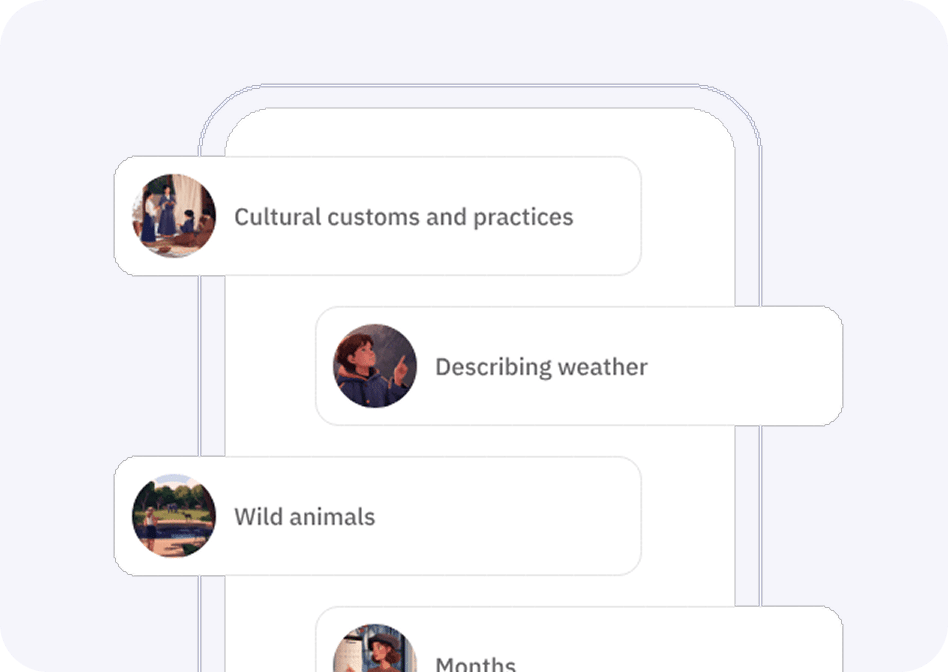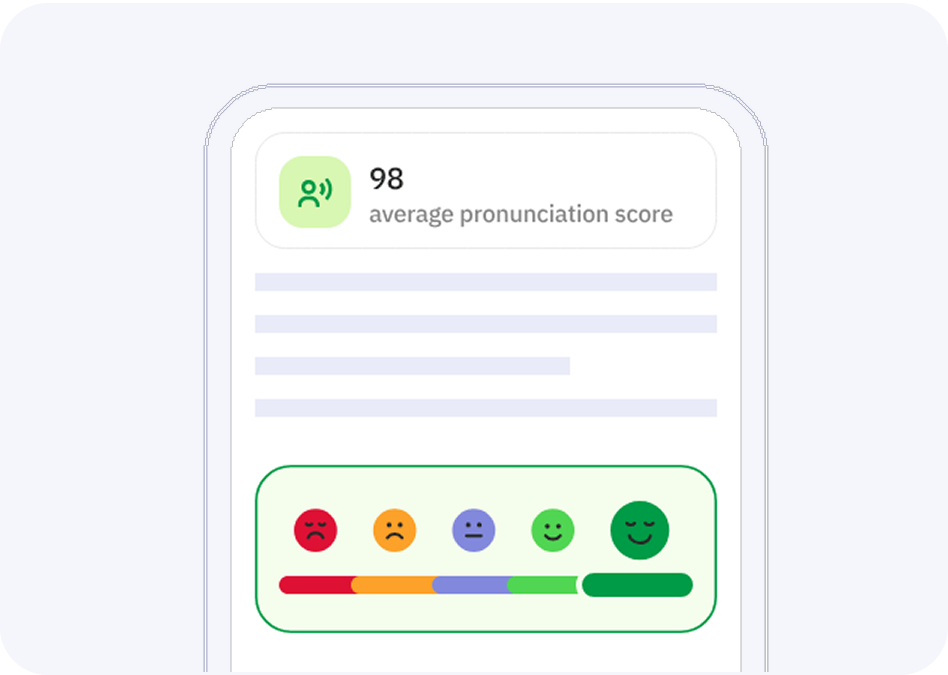Unveiling the World of German Idioms
Ever wandered through the fragrant lanes of the German language? If you have, you would agree that it’s sprinkled with idioms that are as quirky as they are enlightening. Immerse yourself in the world of German idioms, and you’ll not only enhance your language skills but also gain a shortcut to the cultural heartbeat of German-speaking countries. As we delve into this linguistic adventure, let’s remember that idioms are the distilled spirits of a language—potent and packed with flavor. They reflect centuries of history, culture, and the collective wisdom of the people who speak the tongue. So, grab your notepad, and let’s embark on an enthralling exploration of some of the most colorful expressions the German language has to offer.

The talkpal difference

Personalized Education
Every person approaches the study process differently. By leveraging Talkpal technology, we analyze the patterns of millions of learners at the same time to build highly effective educational structures. These insights allow us to create a curriculum that is fully customized to fit the specific needs and interests of every student.

Cutting-Edge Technology
Our main mission is to lead the way in providing a tailored educational journey for every user by utilizing the most recent developments in modern innovation. We strive to make high quality practice accessible to all through superior technical solutions and our advanced AI tutor.

Making Learning Fun
We have transformed the educational process into something truly entertaining. Since maintaining momentum can be difficult in an online setting, we designed Talkpal to be incredibly captivating. The platform is so engaging that users often prefer acquiring new skills with us instead of playing video games.
LANGUAGE LEARNING EXCELLENCE
The most efficient way to learn a language
Try Talkpal for freeGerman Idioms
1. “Da steppt der Bär” – The Bear Dances There
When Germans tell you that ‘the bear dances’ in a particular place, they’re not suggesting you’ll find wildlife cutting a rug, but rather that it’s going to be a lively, fun event. You now have the perfect idiom for raving about that upcoming Oktoberfest!
2. “Die Katze im Sack kaufen” – Buying the Cat in the Bag
The idiom is a caution against buying something sight unseen. In the market square days, unscrupulous sellers might pass off a cat in a bag to an unsuspecting buyer thinking they were getting a piglet. Buyer beware, indeed!
3. “Eine Extrawurst bekommen” – To Get an Extra Sausage
You might think this is akin to receiving a special treat, but it’s actually used more sarcastically. When someone demands special treatment or an exception is made for them, Germans might roll their eyes and refer to this idiom. It’s the side-eyed acknowledgment of someone being a little too precious or demanding.
4. “Ich verstehe nur Bahnhof” – I Only Understand Train Station
It’s a charming way to express complete bafflement. Imagine being dropped at a bustling train station where announcements are flying fast in a hubbub of activity, and you can’t make head or tail of what’s being said. It’s a more picturesque way than simply saying “I don’t understand.”
5. “Da wird der Hund in der Pfanne verrückt” – The Dog Goes Crazy in the Frying Pan
One can’t help but imagine a Looney Tunes scene with this expression. It’s a humorous way of expressing disbelief or when something crazy or unimaginable happens. If someone told you that they saw the quietest person at the office singing karaoke on the table, you might respond with this vivid idiom.
6. “Die Daumen drücken” – Pressing Thumbs
Instead of crossing fingers for luck, Germans press thumbs. Next time you wish someone good fortune, let them know you’re ‘pressing thumbs’ for them. It’s an endearing gesture that may also bring a smile or two just by the novelty of cultural exchange.
7. “Jetzt geht’s um die Wurst” – Now It’s About the Sausage
In Germany, it’s not just about the money or the trophy, it’s about the sausage, which metaphorically means it’s about gaining the highest prize or achieving the ultimate goal. It reflects the heart of competition where the stakes are as high as they can get, and yes, it’s as serious as a sausage.
8. “Um den heißen Brei herumreden” – To Talk Around the Hot Porridge
This idiomatic expression means to beat around the bush or avoid getting to the point. The imagery here is someone trying to eat porridge without burning their mouth, dancing around the issue with a metaphorical spoon, so to speak.
9. “Das ist nicht mein Bier” – That’s Not My Beer
Here’s a relatable one: when something is none of your business or not your problem, you might say, “That’s not my beer.” It’s a succinct way to wash your hands of a matter, subtly alluding to the fact that you have better things to focus on, like enjoying a good beer.
10. “Nicht alle Tassen im Schrank haben” – Not Having All Cups in the Cabinet
Losing your marbles, not having all your ducks in a row, or being a few fries short of a Happy Meal—these are all ways we describe someone who’s a little out of touch with reality. In German, it’s a whimsical way to say that someone is missing a few cups in their cupboard.
Conclusion
Exploring idioms is much like going on a treasure hunt. They add color, personality, and regional spice to our conversations. They help you connect with others, whether through shared humor or the mutual love for the language’s eccentricities. As an AI language learning platform, we at Talkpal understand the value of embracing these idioms. They are not just phrases; they are bridges to understanding a culture deeply and intimately.
German idioms are undoubtedly charming and might sometimes seem outlandish, but they offer a glimpse into the soul of the language. As you continue to unwrap the peculiarities of German through its idioms, you’ll find yourself falling in love with the language, bit by idiosyncratic bit. Submerge yourself in their wisdom, laugh at their wit, and let them guide you into more profound conversational depths. Prosit! And here’s to the rich tapestry of language learning.
The most efficient way to learn a language
Try Talkpal for freeFrequently Asked Questions
What exactly are idioms, and why should I learn them?
Can idioms help me learn German faster and more naturally?
What's a practical way to begin using German idioms in daily conversations?
Are idioms unique to German, or are there similar idioms in other languages?
How literally should I translate German idioms?
Can using idioms incorrectly cause misunderstandings?







